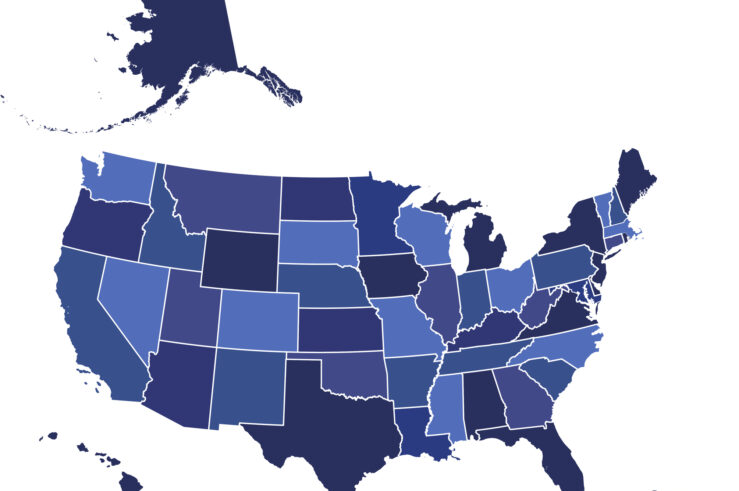Showing results for: “Valid C1000-170 Study Materials 🕗 C1000-170 Latest Exam Answers 🏮 Trusted C1000-170 Exam Resource 🦍 Search on 【 www.pdfvce.com 】 for 【 C1000-170 】 to obtain exam materials for free download 🐀Valid C1000-170 Dumps Demo”
U.S. Senate Self-Preferencing Bill Offers Perfect Recipe for Regulatory Overreach
Even as delivery services work to ship all of those last-minute Christmas presents that consumers bought this season from digital platforms and other e-commerce sites, the U.S. House and Senate are contemplating Grinch-like legislation that looks to stop or limit how Big Tech companies can “self-preference” or “discriminate” on their platforms. A platform “self-preferences” when ... U.S. Senate Self-Preferencing Bill Offers Perfect Recipe for Regulatory Overreach
FTC Statement of Regulatory Priorities: Storm Clouds Are Looming
The Federal Trade Commission (FTC) appears committed—at least, for the moment—to a path of regulatory overreach. The commission’s Dec. 10 Statement of Regulatory Priorities (SRP) offers, in addition to a periodic review of existing rules and the status of proposed rules in the pipeline, a sneak preview of new “unfair methods of competition” (UMC) and ... FTC Statement of Regulatory Priorities: Storm Clouds Are Looming
Merger Control’s Misaligned Incentives
Antitrust policymakers around the world have taken a page out of the Silicon Valley playbook and decided to “move fast and break things.” While the slogan is certainly catchy, applying it to the policymaking world is unfortunate and, ultimately, threatens to harm consumers. Several antitrust authorities in recent months have announced their intention to block ... Merger Control’s Misaligned Incentives
Italy’s Google and Apple Decisions: Regulatory Paternalism and Overenforcement
The Autorità Garante della Concorenza e del Mercato (AGCM), Italy’s competition and consumer-protection watchdog, on Nov. 25 handed down fines against Google and Apple of €10 million each—the maximum penalty contemplated by the law—for alleged unfair commercial practices. Ultimately, the two decisions stand as textbook examples of why regulators should, wherever possible, strongly defer to ... Italy’s Google and Apple Decisions: Regulatory Paternalism and Overenforcement
FTC Challenge to Nvidia-Arm Vertical Merger: Potential Efficiency Justifications
The Federal Trade Commission (FTC) on Dec. 2 filed an administrative complaint to block the vertical merger between Nvidia Corp., a graphics chip supplier, and Arm Ltd., a computing-processor designer. The press release accompanying the complaint stresses the allegation that “the combined firm would have the means and incentive to stifle innovative next-generation technologies, including ... FTC Challenge to Nvidia-Arm Vertical Merger: Potential Efficiency Justifications
Oldie-but-Baddie: The Revival of an Antitrust ‘Efficiencies Offense’?
Recent antitrust forays on both sides of the Atlantic have unfortunate echoes of the oldie-but-baddie “efficiencies offense” that once plagued American and European merger analysis (and, more broadly, reflected a “big is bad” theory of antitrust). After a very short overview of the history of merger efficiencies analysis under American and European competition law, we ... Oldie-but-Baddie: The Revival of an Antitrust ‘Efficiencies Offense’?
Mandatory Interoperability Is Not a ‘Super Tool’ for Platform Competition
On both sides of the Atlantic, 2021 has seen legislative and regulatory proposals to mandate that various digital services be made interoperable with others. Several bills to do so have been proposed in Congress; the EU’s proposed Digital Markets Act would mandate interoperability in certain contexts for “gatekeeper” platforms; and the UK’s competition regulator will ... Mandatory Interoperability Is Not a ‘Super Tool’ for Platform Competition
The FTC’s Privacy Report Fails to Justify Asymmetric Regulation of ISPs
Others already have noted that the Federal Trade Commission’s (FTC) recently released 6(b) report on the privacy practices of Internet service providers (ISPs) fails to comprehend that widespread adoption of privacy-enabling technology—in particular, Hypertext Transfer Protocol Secure (HTTPS) and DNS over HTTPS (DoH), but also the use of virtual private networks (VPNs)—largely precludes ISPs from ... The FTC’s Privacy Report Fails to Justify Asymmetric Regulation of ISPs
Political Philosophy, Competition, and Competition Law: The Road to and from Neoliberalism, Part 1
The interplay among political philosophy, competition, and competition law remains, with some notable exceptions, understudied in the literature. Indeed, while examinations of the intersection between economics and competition law have taught us much, relatively little has been said about the value frameworks within which different visions of competition and competition law operate. As Ronald Coase ... Political Philosophy, Competition, and Competition Law: The Road to and from Neoliberalism, Part 1
Case closed: Google wins (for now)
The European Commission and its supporters were quick to claim victory following last week’s long-awaited General Court of the European Union ruling in the Google Shopping case. It’s hard to fault them. The judgment is ostensibly an unmitigated win for the Commission, with the court upholding nearly every aspect of its decision. However, the broader ... Case closed: Google wins (for now)
The BIF Offers a Good First Step for Broadband, but the Devil Will Be in the Details
Capping months of inter-chamber legislative wrangling, President Joe Biden on Nov. 15 signed the $1 trillion Infrastructure Investment and Jobs Act (also known as the bipartisan infrastructure framework, or BIF), which sets aside $65 billion of federal funding for broadband projects. While there is much to praise about the package’s focus on broadband deployment and ... The BIF Offers a Good First Step for Broadband, but the Devil Will Be in the Details
What is the Appropriate Role for State Antitrust Enforcement?
In the U.S. system of dual federal and state sovereigns, a normative analysis reveals principles that could guide state antitrust-enforcement priorities, to promote complementarity in federal and state antitrust policy, and thereby advance consumer welfare. Discussion Positive analysis reveals that state antitrust enforcement is a firmly entrenched feature of American antitrust policy. The U.S. Supreme ... What is the Appropriate Role for State Antitrust Enforcement?
















